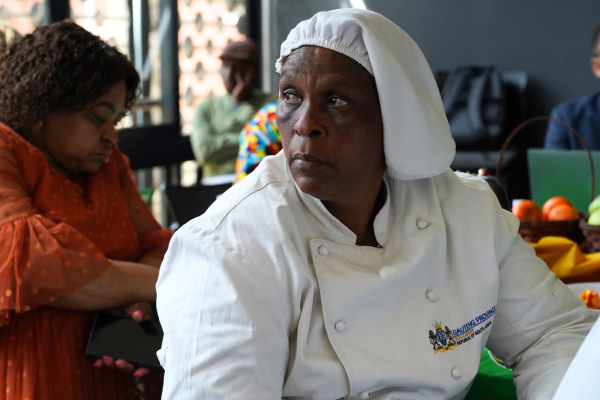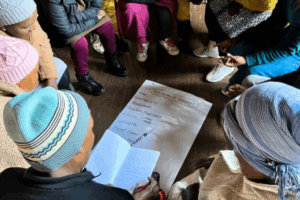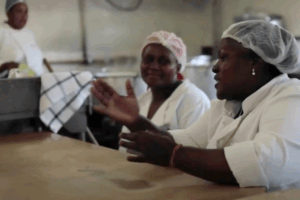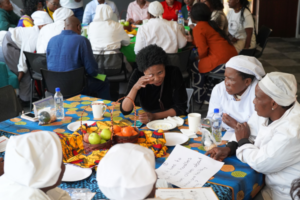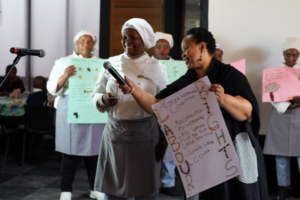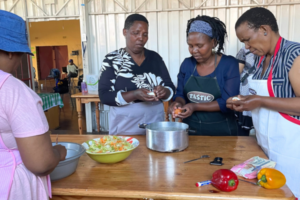For the past few months, we have worked alongside Webber Wentzel, a team of attorneys who have acted as our voice to the Department of Basic Education, particularly the officials responsible for the National School Nutrition Programme (NSNP). Our focus has been on food handlers, the often-overlooked women who keep this critical programme running.
For four years, we have engaged with food handlers from across Johannesburg, helping them recognise the power they hold in schools and in society at large. Through countless conversations, we have heard their stories of injustice and worked with them to find solutions.
Sadly, many of these challenges are not minor inconveniences, they directly affect their ability to provide meals to children. In South Africa, food handlers prepare and serve meals to more than nine million children every day, often more than one meal. One would think they would be adequately supported. The reality? They are not.
Food handlers have told us that they are not given basic kitchen utensils to work with. Some have had to bring pots and knives from home so the children would not wait too long for their meals. This is just one example, the tip of the iceberg, of the systemic neglect they face.
Earlier this year, with the help of our legal team, we secured an urgent meeting with NSNP officials. The immediate concern was that food handler contracts were ending after two years in March, and without proper systems in place, they risked facing the same UIF nightmare as previous cohorts.
In the past, many food handlers discovered, only when trying to claim UIF, that they had never been registered by their schools, despite having deductions made from their salaries every month. Others were registered incorrectly, with principals recording the wrong working hours. This led to weeks of back-and-forth between schools and the Department of Labour, repeated photocopying of documents, and endless queues. For many, the process became so stressful, costly, and time-consuming that they abandoned their claims altogether.
We had tried to raise these concerns with the department repeatedly trying to get an audience with them without success. Only when attorneys became involved did the department respond with urgency. While we welcome the progress, it is deeply troubling that civil society organisations, already stretched thin, are forced to rely on legal intervention simply to get officials to listen. It should not take “Goliath” legal muscle to secure fair treatment for the most vulnerable in our society. We appreciate
From our meeting, we achieved two important developments:
- The standard working hours for food handlers will now be set at eight hours.
- The term “volunteer food handlers” will be dropped. They will simply be recognised as Food Handlers.
This may seem small, but correct job titles carry dignity in the form of basic conditions recognised and enshrined in the Basic Conditions of Employment Act as well as labour rights as addressed in the Constitution and expanded in the Labour Relations Act. In this regard we recognise that we will see the progressive realisation of a liveable, decent wage, medical aid because they work in the kitchen exposes them to harm, as well as paid leave. Language matters, recognition matters.
We commend the Department of Basic Education for these steps forward. But this is just the beginning. We call on them to meet the rest of the proposals we have tabled and to work with food handlers, not against them, in the struggle for decent work and fair conditions.
Because when food handlers are treated with dignity, children are fed with dignity too.

